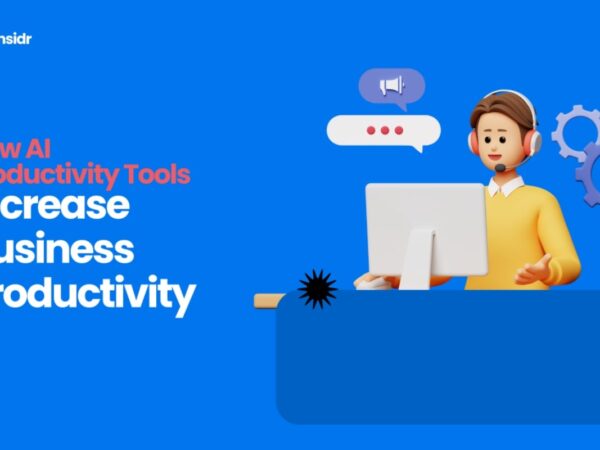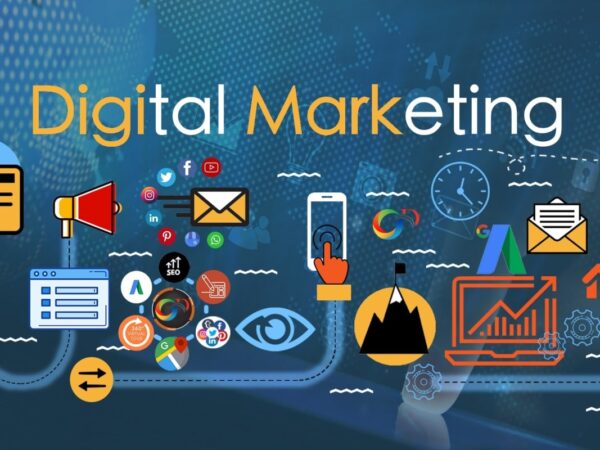
Digital Marketing Trends 2024: A Comprehensive Guide
In the ever-evolving landscape of digital marketing, staying ahead of the curve is crucial for businesses across all industries. As we move further into 2024, new technologies and consumer behaviors continue to shape the way brands connect with their audiences.
This comprehensive guide explores the latest digital marketing trends, offering insights and strategies for businesses looking to enhance their online presence and drive growth.
Overview of Digital Marketing in 2024
The digital marketing ecosystem has undergone significant transformations in recent years. With the rapid advancement of technology and the increasing sophistication of consumer expectations, marketers must adapt quickly to remain competitive. Some overarching trends that have emerged include:
- Increased focus on privacy and data protection
- The rise of AI and machine learning in marketing automation
- Greater emphasis on personalization and customer experience
- The growing importance of video content across platforms
- The integration of augmented reality (AR) and virtual reality (VR) in marketing strategies
Let’s dive deeper into how these trends are manifesting across different industries.
Digital Marketing Trends for E-Commerce
E-commerce continues to be a rapidly growing sector, with global sales projected to reach new heights in 2024. To stay competitive in this crowded market, e-commerce businesses are adopting innovative marketing strategies:
1. Visual Search Optimization
As visual-based social media platforms like Pinterest and Instagram continue to dominate, visual search has become increasingly important for e-commerce businesses. Consumers now expect to find products by searching for images rather than keywords. To capitalize on this trend:
- Optimize product images for visual search engines like Google Lens and Pinterest Lens
- Use high-quality, clear images that showcase products from multiple angles
- Implement alt text and descriptive file names for images to improve SEO
2. Artificial Intelligence and Machine Learning
AI and machine learning are revolutionizing e-commerce marketing by enabling more sophisticated personalization and automation:
- Predictive analytics: Use AI to analyze customer data and predict future buying behaviors
- Chatbots and virtual assistants: Implement AI-powered chatbots to provide 24/7 customer service and personalized product recommendations
- Dynamic pricing: Utilize machine learning algorithms to optimize pricing strategies based on market demand and competitor analysis
3. Augmented Reality (AR) Shopping Experiences
AR technology is transforming the online shopping experience by allowing customers to visualize products in their own space before making a purchase:
- Virtual try-ons: Implement AR for clothing, accessories, and cosmetics to allow customers to see how products look on them
- In-home visualization: Enable customers to place furniture and decor items in their homes using AR apps
- Interactive product demonstrations: Create AR experiences that showcase product features and functionality
4. Voice Commerce Optimization
With the increasing adoption of smart speakers and voice assistants, optimizing for voice search and commerce is becoming crucial:
- Implement conversational keywords in product descriptions and content
- Create voice-friendly FAQ sections to address common customer queries
- Develop voice-activated shopping lists and reordering capabilities
Digital Marketing Trends for B2B
The B2B sector is experiencing its own digital transformation, with new trends emerging to help businesses connect with their clients more effectively:
1. Account-Based Marketing (ABM)
ABM continues to gain traction as a highly targeted approach to B2B marketing:
- Utilize AI and data analytics to identify and prioritize high-value accounts
- Create personalized content and campaigns tailored to specific decision-makers within target accounts
- Implement cross-channel ABM strategies that integrate digital advertising, email marketing, and content marketing
2. Interactive Content Marketing
B2B marketers are moving beyond static content to create more engaging, interactive experiences:
- Develop interactive infographics and data visualizations
- Create online assessment tools and calculators to help potential clients evaluate their needs
- Implement gamification elements in content to increase engagement and lead generation
3. LinkedIn Marketing Optimization
As the premier B2B social network, LinkedIn continues to offer new marketing opportunities:
- Leverage LinkedIn’s enhanced targeting capabilities for paid advertising
- Utilize LinkedIn Live for virtual events, product launches, and thought leadership sessions
- Optimize company pages and employee profiles for better visibility and engagement
4. Conversational Marketing and Sales
B2B buyers increasingly expect real-time, personalized interactions:
- Implement AI-powered chatbots for lead qualification and initial engagement
- Utilize live chat tools to connect prospects with sales representatives quickly
- Develop conversational marketing strategies that align with the buyer’s journey
Digital Marketing Trends for Travel
The travel industry has faced significant challenges in recent years, but digital marketing innovations are helping to drive recovery and growth:
1. Virtual and Augmented Reality Experiences
VR and AR technologies are transforming how travelers research and plan their trips:
- Create virtual tours of destinations, hotels, and attractions
- Develop AR-enhanced travel guides and navigation tools
- Implement VR-based booking experiences that allow users to explore accommodations before booking
2. Sustainable Travel Marketing
With increasing awareness of environmental issues, sustainable travel marketing has become a key focus:
- Highlight eco-friendly practices and initiatives in marketing materials
- Develop content that educates travelers on sustainable tourism practices
- Partner with environmental organizations to create cause-related marketing campaigns
3. Influencer Marketing 2.0
The travel industry continues to leverage influencer marketing, but with a more strategic approach:
- Focus on micro-influencers with highly engaged niche audiences
- Implement long-term influencer partnerships for authentic, ongoing content creation
- Utilize user-generated content (UGC) from influencers and travelers to build trust and inspire bookings
4. Personalized Travel Experiences
Leveraging data to create personalized travel recommendations and experiences:
- Implement AI-powered recommendation engines for personalized itinerary planning
- Develop dynamic pricing strategies based on individual user data and preferences
- Create personalized email marketing campaigns that target travelers based on past behavior and preferences
Digital Marketing Trends for Healthcare
The healthcare industry has seen a significant digital transformation, particularly in the wake of recent global health challenges:
1. Telemedicine and Virtual Care Marketing
With the rise of telemedicine, healthcare marketers are adapting their strategies:
- Develop content that educates patients on the benefits and processes of virtual care
- Implement SEO strategies focused on telemedicine-related keywords
- Create video content showcasing telemedicine services and patient testimonials
2. Patient Experience Optimization
Healthcare providers are focusing on improving the overall patient experience through digital channels:
- Develop user-friendly patient portals and mobile apps for appointment scheduling and health management
- Implement chatbots for quick answers to common health questions and appointment booking
- Create personalized health content based on patient data and preferences
3. Health Wearables and IoT Integration
The growing adoption of health wearables and IoT devices presents new marketing opportunities:
- Develop marketing campaigns that highlight the integration of wearable data with healthcare services
- Create content that educates patients on how to use wearable data to improve their health
- Implement targeted advertising based on anonymized wearable data insights
4. Healthcare Content Marketing
Content continues to play a crucial role in healthcare marketing:
- Develop comprehensive, SEO-optimized health guides and resources
- Create engaging video content for patient education and brand awareness
- Leverage podcasts to discuss health topics and build thought leadership
Digital Marketing Trends for Restaurants
The restaurant industry has had to adapt quickly to changing consumer behaviors, leading to innovative digital marketing strategies:
1. Mobile-First Ordering and Marketing
With the rise of mobile ordering, restaurants are prioritizing mobile-first strategies:
- Develop user-friendly mobile apps for ordering and loyalty programs
- Implement location-based mobile marketing to target nearby customers
- Optimize websites and online menus for mobile devices
2. Social Media Menu Integration
Social media platforms are becoming increasingly important for restaurant marketing:
- Utilize Instagram’s food ordering features to enable direct ordering from posts and stories
- Create visually appealing content showcasing menu items and special offers
- Leverage user-generated content to build social proof and attract new customers
3. Virtual Restaurant Concepts
The rise of delivery-only “ghost kitchens” has led to new marketing challenges and opportunities:
- Develop strong branding and digital presence for virtual restaurant concepts
- Utilize targeted digital advertising to reach potential customers in delivery areas
- Create engaging content that tells the story behind virtual restaurant brands
4. Contactless Dining Experiences
Even as in-person dining returns, contactless options remain popular:
- Promote contactless ordering and payment options in marketing materials
- Develop QR code menus and implement QR code marketing strategies
- Create video content showcasing safety measures and contactless dining experiences
Conclusion: Embracing the Future of Digital Marketing
As we navigate the complex and ever-changing landscape of digital marketing in 2024, it’s clear that adaptability and innovation are key to success. Businesses across all industries must stay informed about emerging trends and technologies,
continuously refining their strategies to meet the evolving needs and expectations of their target audiences.
Some key takeaways for marketers to consider:
- Prioritize data privacy and transparency in all marketing efforts
- Embrace AI and machine learning to enhance personalization and automation
- Focus on creating immersive, interactive experiences through AR, VR, and video content
- Optimize for voice search and commerce across all digital platforms
- Leverage user-generated content and influencer partnerships for authentic engagement
- Invest in mobile-first strategies and seamless omnichannel experiences
By staying ahead of these trends and continuously adapting to the changing digital landscape, businesses can position themselves for success in 2024 and beyond.
The future of digital marketing is bright, filled with opportunities for those willing to embrace innovation and put the customer at the center of their strategies.








